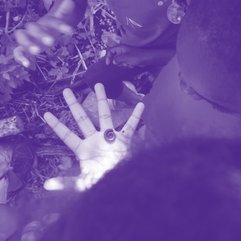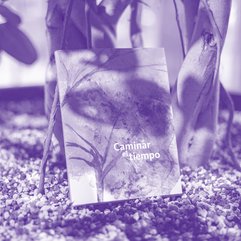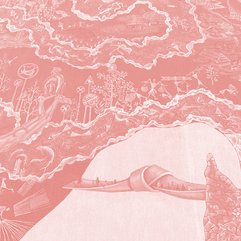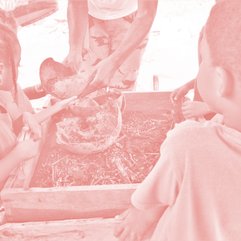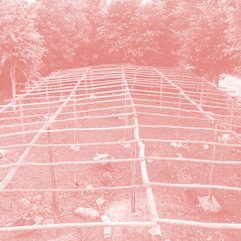Cancelled Culture
A weekend platforming silenced voices
11.30-20.00
Save the Date
for adults
in English

The suppression of pro-Palestinian voices in art, media, academia, and public life has been a well-documented feature of recent history, in Germany and beyond.
For decades, voices critical of the policies of the Israeli state in the occupied Palestinian territories – including policies which have been ruled to be illegal by the world’s highest courts, or military activity resulting in credible allegations of war crimes by the UN – have been subject to silencing, defunding, delegitimization, and physical violence. The unprecedented Israeli assault on Gaza since October 2023 has, however, precipitated a substantial shift in the scale and shape of this suppression, even as the International Court of Justice has ruled that it is plausible that Israel is committing genocide against the Palestinian population of Gaza.
In recent years, groups across civil society have begun their own monitoring projects, tracking cases of suppression of Palestinian voices, progressive Jewish voices, and those of their allies, each from the vantage point of their own practice. Since October 2023, those projects have operated with renewed urgency, in the face of a feverish intensification of silencing, across geographies and disciplines.
Convened by Forensis, Spore Initiative, and the poet Ghayath Almadhoun, with contributions from Diaspora Alliance, Palestine Speaks, the European Legal Support Centre, and NotInOurNameTU, Cancelled Culture brings together some of those groups, including voices from the cultural field, activism, journalism, and the law. Across a two-day programme of discussions, interviews, and performances, the event will explore the phenomenon of silencing, cancellation, and suppression of free speech in a spirit of resistance, strength, and solidarity.
Program
Saturday 30 November
11:30 am Opening remarks
12:00 pm Anatomy of a cancellation: how did we get here, and how does it happen?
with Yossi Bartal and Emily Dische-Becker
What is the playbook for ‘cancellation’? When and where were those rules written? Journalist Yossi Bartal and Emily Dische-Becker, Diaspora Alliance’s Germany Director, discuss how the sanctioning of Palestinians and pro-Palestinian expression plays out in Germany and beyond, breaking down the mechanisms and dynamics which make it possible.
1:00 - 2:00 pm Baba Ghanoush prepared by Ghayath Almadhoun
3:00 pm Deborah Feldman and Yazan Khalili in conversation
4:30 pm Culture in Berlin, November 2024: Status Update
Ghayath Almadhoun, Eyal Weizman, Ewa Majewska, and Dr. Sandrine Micossé-Aikins, moderated by Emily Dische-Becker
This month, the Berlin Senate announced deep and disproportionate cuts to the city’s cultural funding – where and how these cuts have been directed is only now coming into focus. Responding to present urgencies, this panel will consider the role of austerity politics, spending cuts, and public funding guidelines in implementing and justifying the censorship and exclusion of undesirable voices, alongside other attempts to penalize artists for their political positions as part of the toolkit of a broader culture war that extends beyond Germany’s borders.
6:00 pm Strategies of Resistance from Kurdish and Palestinian Experiences in Germany
With Nora Ragab and Dilar Dirik, moderated by Arjin
Curated by Palestine Speaks with Ceni - Kurdish Women's Bureau for Peace, this panel will explore Palestinian and Kurdish perspectives on the German state's systematic repression of dissenting voices challenging occupation, apartheid, and domination.
This panel is co-curated with Ceni - Kurdish Womens Burau for Peace.
7:00 pm Readings by Ghayath Almadhoun, Haytham el-Wardany, Deborah Feldman, Lana Bastašić, and Rasha Salti
Ghayath Almadhoun curates a selection of readings and literary performances from writers who have experienced censorship or cancellations in connection to their expressions of pro-Palestinian sentiment.
Sunday 1 December
12:00 pm Silencing: disinformation, criminalization and legal repercussions
Jasmin El Hussain and Tobias den Haan
The European Legal Support Center (ELSC) defends and empowers the Palestine solidarity movement in courts across Europe. Since 2019, ELSC has been monitoring Europe's crackdown on Palestine solidarity, the shrinking of civic space, and the resulting chilling effect. ELSC's Germany monitoring officer and legal officer present exemplary cases, and discuss how the law can be used as a tool of oppression – and as a tool of resistance.
3:00 pm Candice Breitz and Nicolás Jaar in conversation with Hanno Hauenstein
4:30 pm Absurd Dispatches: reading selected letters of cancellation
Readings by Lara Laila and Racha Gharbieh
Absurdity and unreason are often hallmarks of a creeping authoritarian tendency. Ghayath Almadhoun and Emily Dische-Becker curate a series of spoken word performances, of letters by which artists, academics, and other cultural figures were informed that their events had been canceled, their positions terminated, or their voices otherwise silenced.
5:30 pm An End to Academic Complicity
with Nabil, Mira, and Dr. Isabel Feichtner
Over the last year, students across Germany have protested against their institutions’ ideological and material support of the ongoing genocide in Gaza – many of these protests were met with police violence. In August, students and employees at TU Berlin called on their administration to end cooperation with Israeli universities complicit in international law violations. Join academics and students to discuss the obligations of universities to end complicity, and student activism within the context of tightening state repression.
6:30 pm Closing notes
7:00 pm Starry Night: A performative reading with Mazen Kerbaj
**************************
Founded in 2021 in Berlin by members of the Forensic Architecture research agency, Forensis works for and in collaboration with individuals and communities affected by state and corporate violence, to support their demands for justice, reparations, and accountability.
Ghayath Almadhoun is a Palestinian-Syrian-Swedish poet, born in Damascus and today living between Stockholm and Berlin.
Yossi Bartal is a researcher and journalist.
Candice Breitz is a Berlin-based, South African artist who has lived in Germany since 2002. In November 2024, the Saarlandmuseum canceled an exhibition of Breitz’s work abruptly (and in the absence of due process) in response to her criticism of Israel’s far-right governing coalition. Previously, a symposium titled ‘We Still Need to Talk’ (which Breitz co-curated with Michael Rothberg) was prevented from taking place with the support of German state funding on two separate occasions (first by Berlin’s Akademie der Künste in December 2022; then by the Bundeszentrale für politische Bildung in mid-October 2023).
Dilar Dirik was born in Antakya and grew up in Offenbach am Main. She is a researcher and writer. She holds a PhD in Sociology from the University of Cambridge. From 2019-2023, she worked as a postdoctoral fellow at the University of Oxford. Her book ‘The Kurdish Women’s Movement: History, Theory, Practice’, is an in-depth ethnography of the autonomous women's struggle in Kurdistan and was published with Pluto Press in 2022. Dilar has left academia and now focuses on political education and internationalist alliance-building work.
Emily Dische-Becker is a writer, organizer, curator, director of Diaspora Alliance’s Germany branch, and a researcher for Forensis and Forensic Architecture.
Tobias den Haan is a Monitoring officer who documents repression, erasure, and silencing of Palestine solidarity in Germany with a particular interest in colonial history and decolonial political theory.
Jasmin El Hussein is a lawyer dedicated to defending the rights of vulnerable groups and amplifying the voices of those who are facing repression.
Haytham el-Wardany is an Egyptian writer and translator. He lives and works in Berlin, and writes short stories and experimental prose. His praxis focuses on fiction, especially short stories, and nonfiction formats, like essays, and fragmental prose.
Deborah Feldman is an American-born German writer living in Berlin. Her 2012 autobiography tells the story of her escape from an ultra-Orthodox Jewish community in Brooklyn, New York.
Dr. Isabel Feichtner is a Professor of Public Law and International Economic Law at the University of Würzburg.
Racha Gharbieh has a degree in interior architecture and worked in the field of architecture from 2001 to 2015. Since moving to Berlin in 2015, she has collaborated with artists on various projects in visual art, theater, and music. She co-founded the collective Smallest Functional Unit, is co-editor of Graphème, and co-curates Making Waves, a monthly series of talks and screenings. Additionally, she is a co-publisher of Headache Comics, a publishing house for alternative books and comics.
Hanno Hauenstein is a Berlin-based independent journalist and author. His work has appeared in The Guardian, Berliner Zeitung, The Intercept, and Haaretz, among others.
Nicolás Jaar, 34, was born in NY to Chilean parents and raised between Santiago and New York. Since 2008, he has released music under various guises spanning shades of pop, ambient, noise, and club music. Since 2013, he has curated the Other People label, releasing the visual & audio work of artists Maziyar Pahlevan, Africanus Okokon, Jena Myung, and the music of Aho Ssan, Saint Abdullah, Dienne, Pierre Bastien, and Lydia Lunch among others. In recent years, Nicolás has mainly focused on education, teaching sound-editing and listening workshops to emerging musicians and non-musicians alike in institutions such as the Museo de la Memoria in Santiago, Chile, AdBK in Munich, Germany, free.wav in Attappadi, India, Festival 4x4, Chiapas, Mexico, Dar Jacir and Alrowwad in Bethlehem, Palestine, among others. His latest project is called "Archivos de Radio Piedras". It's a 3h 1/2 long radio play set in the near future in Chile. His debut collection of stories "Isole" was released by Timeo, an Italian publishing house, in February 2024. Nico is also part of the "Shock Forest Group", "Darkside", and was one of the founders of "Musicians for Palestine".
Mazen Kerbaj is a Lebanese comics author, visual artist, and musician born in Beirut in 1975. He also works on selective illustration and design projects and has taught at the American University of Beirut. Kerbaj is the author of 15 books translated into more than ten languages and his work has been shown in galleries, museums and art fairs around the world. Mazen Kerbaj is widely considered as one of the initiators and key players of the Lebanese free improvisation and experimental music scene. As a trumpet player, he pushes the boundaries of the instrument beyond recognition.
Yazan Khalili is a visual artist, architect, and cultural activist, working in and out of Palestine, currently based in Amsterdam, Netherlands, where he is a PhD candidate at Amsterdam School for Cultural Analysis (ASCA), University of Amsterdam. In 2022, Khalili participated in documenta 15, Kassel, as part of the Question of Funding collective.
Lara Laila is a Palestinian/ German moderator and activist.
Ewa Majewska is a feminist theorist of culture and associate professor at the SWPS University in Warsaw. Her research focuses on archive studies, dialectics of the weak, feminist critical theory, and antifascism.
Mira is a South African student activist with the Stand Up for Palestine collective at the University of Potsdam.
Nabil is a Palestinian student activist with the NotInOurNameTU student collective at the TU Berlin.
Nora Ragab is German-Palestinian migration scholar based in Berlin with a research focus on the intersections of diaspora mobilization, conflicts, and socio-political dynamics of displacement.
Rasha Salti is a researcher, writer, and curator of art and film. She lives between Marseille and Beirut.
Eyal Weizman is the director of Forensis and Forensic Architecture, sister research agencies conducting investigations into rights violations and state violence from their offices in Berlin and London.




